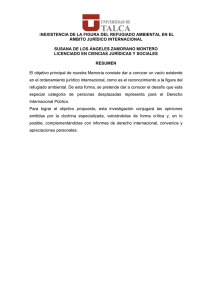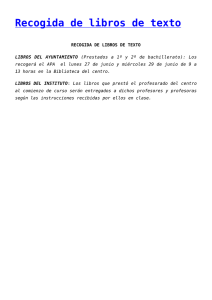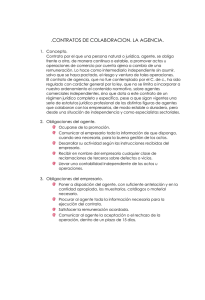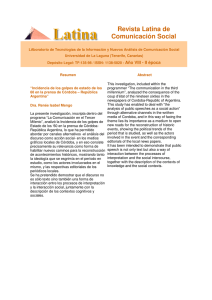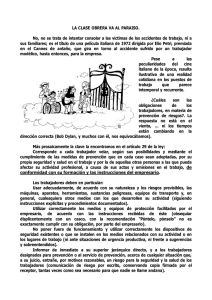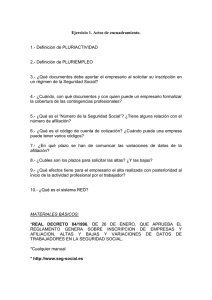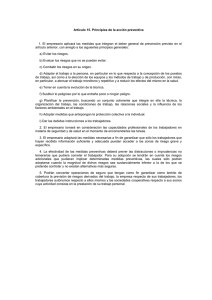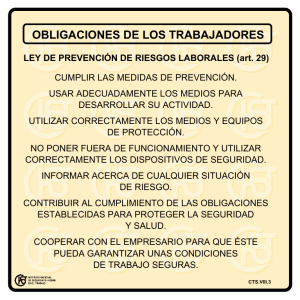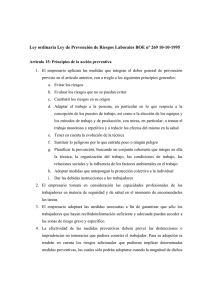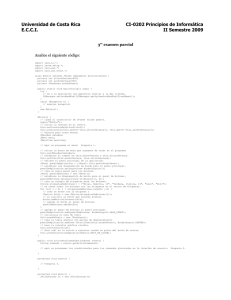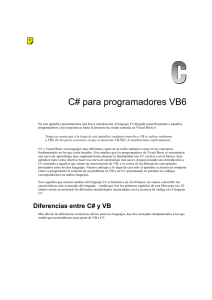pógincas 27 - 96 - Portal de Revistas Académicas de la Universidad
Anuncio
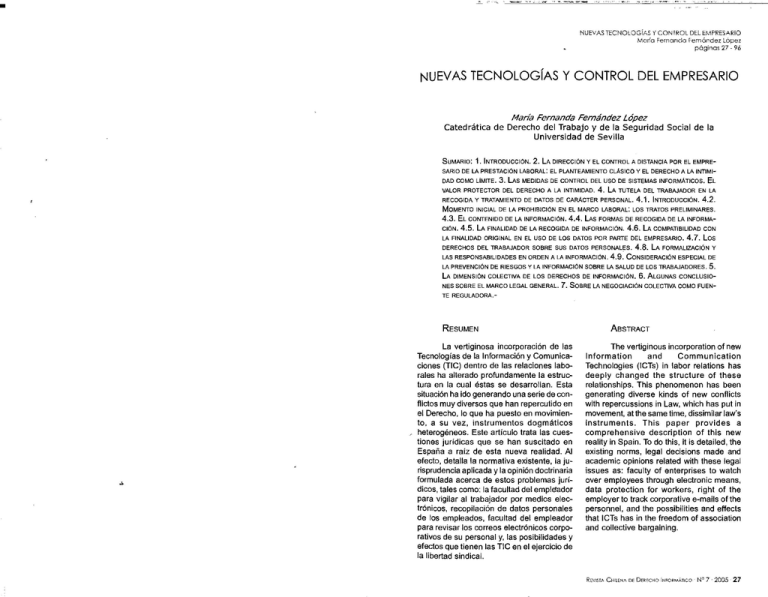
• HUEVAS TECNOLOGír..s y CONTROL DEL EMPRESARIO Moría Fernando Fernóndez L6pez páginas 27 . 96 NUEVAS TECNOLOGíAS Y CONTROL DEL EMPRESARIO María Fernanda Fernández López Catedrática de Derecho del Trabajo y de la Seguridad Social de la Universidad de Sevilla SUMARIO: 1. INTRODUCCiÓN. 2. LA DIRECCiÓN Y EL CONTROL A DISTANCIA POR EL EMPRE- SARIO DE LA PRESTACiÓN LABORAL: EL PLANTEAMIENTO CLÁSICO Y EL DERECHO A LA INTIMIDAD COMO LIMITE. 3. LAS MEDIDAS DE CONTROL DEL USO DE SISTEMAS INFORMÁTICOS. EL VALOR PROTECTOR DEL DERECHO A LA INTIMIDAD. 4. LA TUTELA DEL TRABAJADOR EN LA 4.1. RECOGIDA Y TRATAMIENTO DE DATOS DE CARÁCTER PERSONAL. INTRODUCCiÓN. 4.2. MOMENTO INICIAL DE LA PROHIBICióN EN EL MARCO LABORAL: LOS TRATOS PRELIMINARES. 4.3. CiÓN. EL CONTENIDO DE LA INFORMACiÓN. 4.5. LA 4.4. LAS FORMAS DE RECOGIDA DE LA INFORMA- FINALIDAD DE LA RECOGIDA DE INFORMACiÓN. 4.6. LA COMPATIBILIDAD CON LA FINALIDAD ORIGINAL EN EL USO DE LOS DATOS POR PARTE DEL EMPRESARIO. DERECHOS DEL TRABAJADOR SOBRE SUS DATOS PERSONALES. LAS RESPONSABILIDADES EN ORDEN A LA INFORMACiÓN. 4.9. 4.8. 4.7. Los LA FORMALIZACiÓN Y CONSIDERACiÓN ESPECIAL DE LA PREVENCiÓN DE RIESGOS Y LA INFORMACiÓN SOBRE LA SALUD DE LOS TRABAJADORES. LA DIMENSiÓN COLECTIVA DE LOS DERECHOS DE INFORMACiÓN. NES SOBRE EL MARCO LEGAL GENERAL. 6. 5. ALGUNAS CONCLUSIO- 7. SOBRE LA NEGOCIACiÓN COLECTIVA COMO FUEN- TE REGULADORA.- RESUMEN La vertiginosa incorporación de las Tecnologías de la Información y Comunicaciones (TIC) dentro de las relaciones laborales ha alterado profundamente la estructura en la cual éstas se desarrollan. Esta situación ha ido generando una serie de conflictos muy diversos que han repercutido en el Derecho, lo que ha puesto en movimiento, a su vez, instrumentos dogmáticos heterogéneos. Este artículo trata las cuestiones jurídicas que se han suscitado en España a raíz de esta nueva realidad. Al efecto, detalla la normativa existente, la jurisprudencia aplicada y la opinión doctrinaria formulada acerca de estos problemas jurídicos, tales como: la facultad del emplaador para vigilar al trabajador por medios electrónicos, recopilación de datos personales de los empleados, facultad del empleador para revisar los correos electrónicos corporativos de su personal y, las posibilidades y efectos que tíenen las TIC en el ejercicio de la libertad sindical. ABSTRAeT The vertiginous incorporalion of new Information and Communicalion Technologies (ICTs) in labor relalions has deeply changed the structure of these relalionships. This phenomenon has been generating diverse kinds of new conflicts with repercussions in Law, which has put in movement, at the same time, dissimilar law's instruments. This paper provides a comprehensive description of this new reality in Spain. To do this, it is detailed, the existing norms, legal decisions made and academic opinions related with these legal issues as: faculty of enterprises to watch over employees through electronic means, data proteclion for workers, right of the employer to track corporative e-mails of the personnel, and the possibilities and effects that ICTs has in the freedom of association and collective bargaining. ReVISTA CH¡lEN.'~ DE DEReCHO Ir·.IFORMÁ1KO Na 7 . 2005 27
